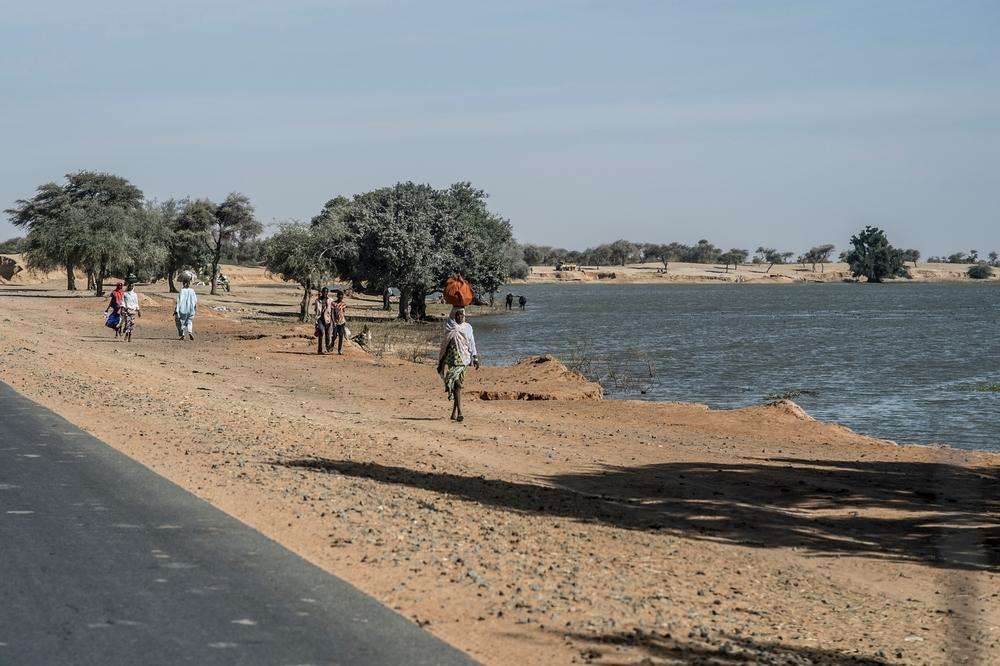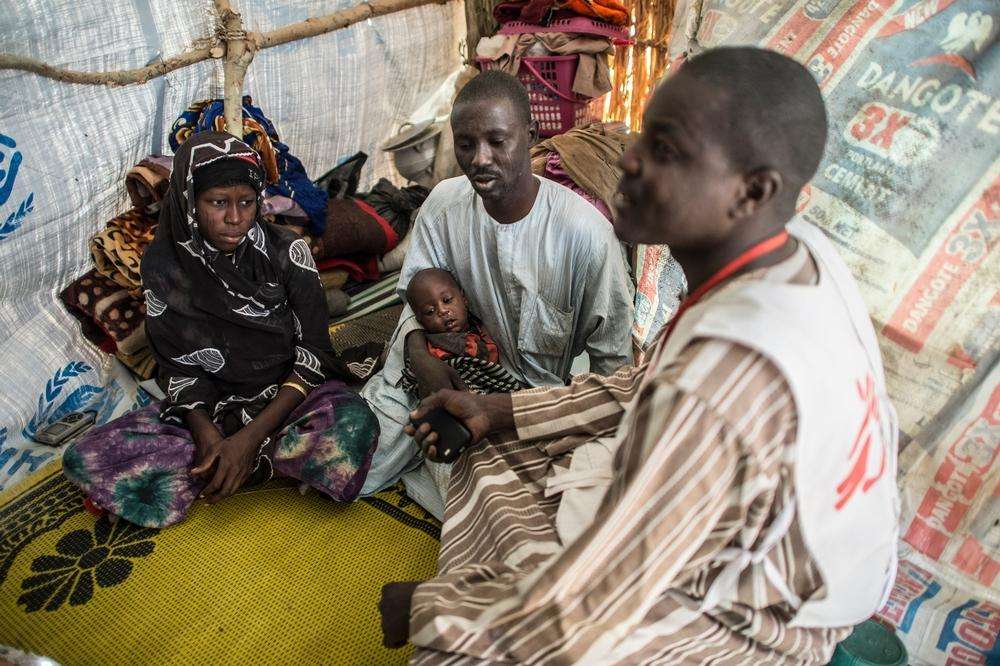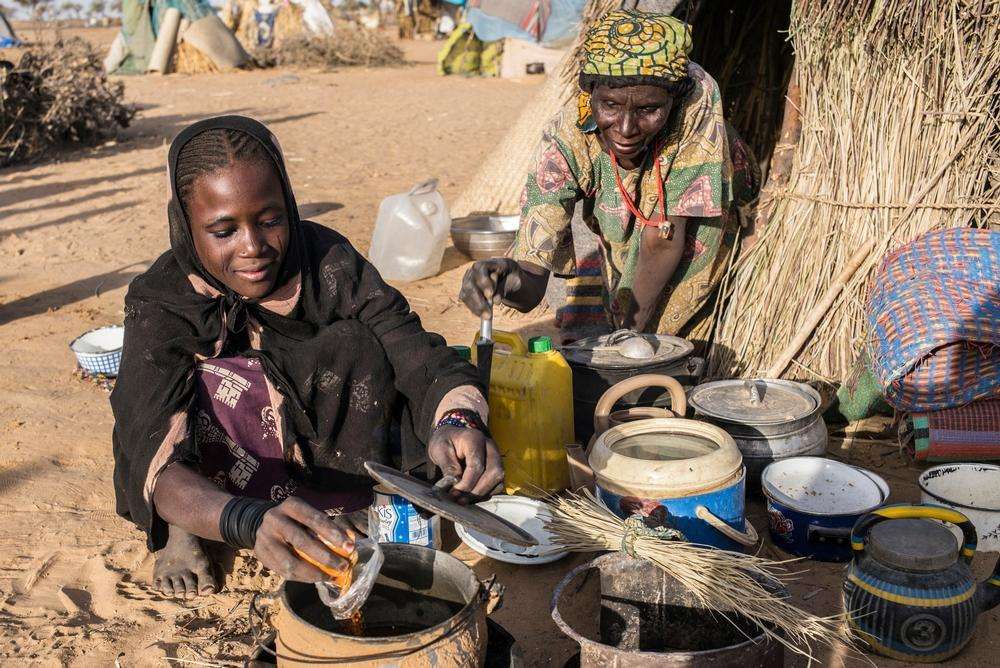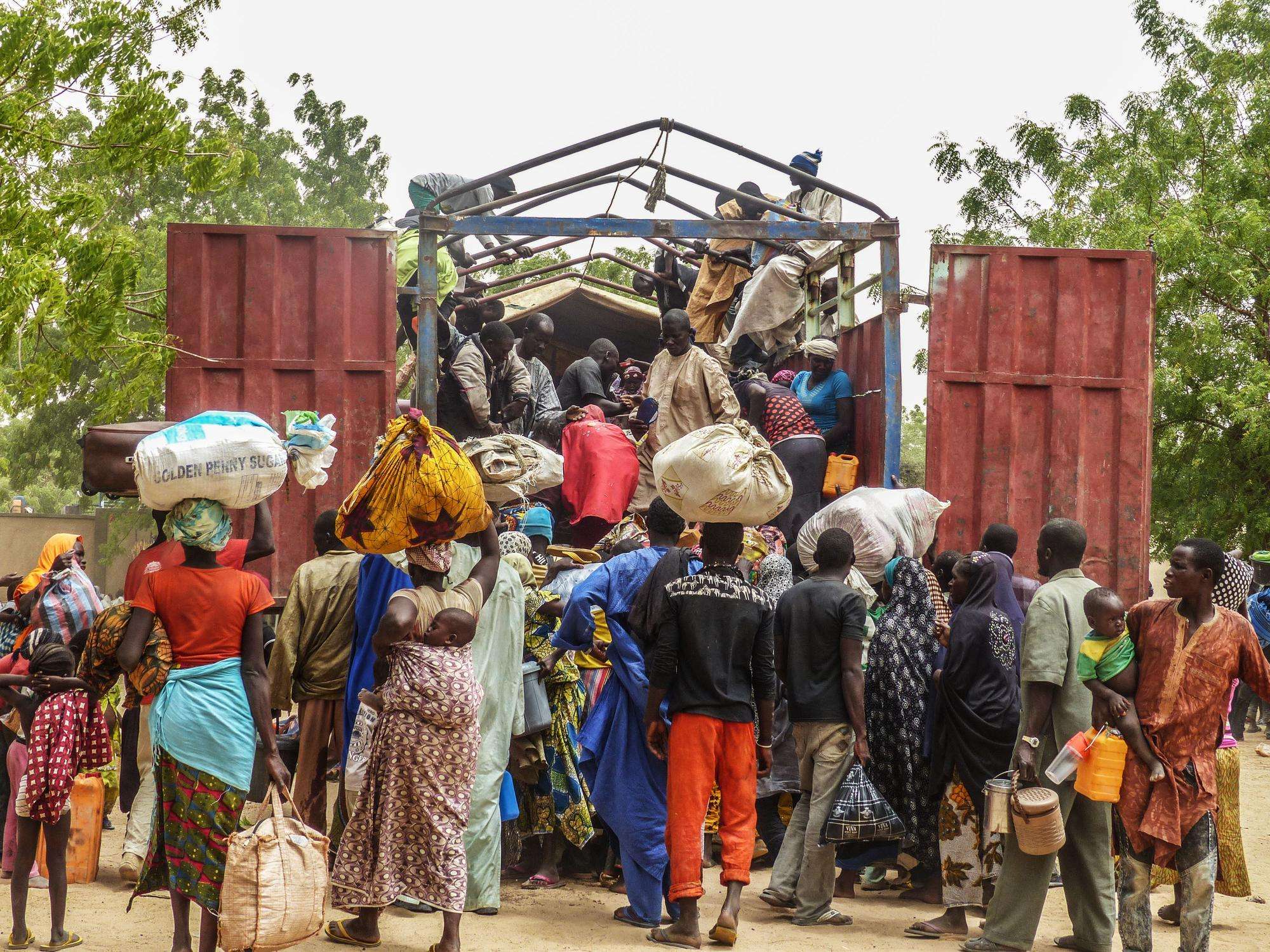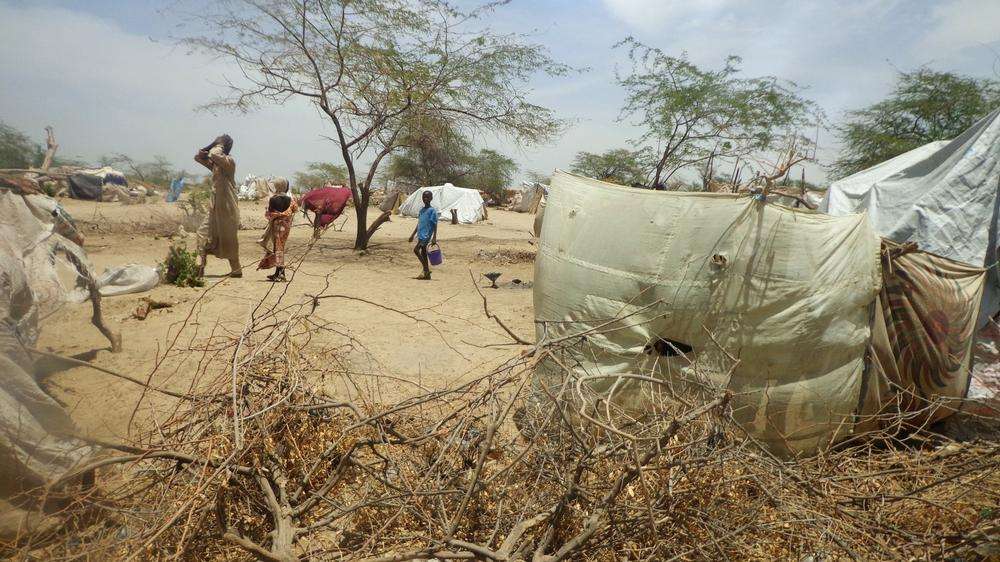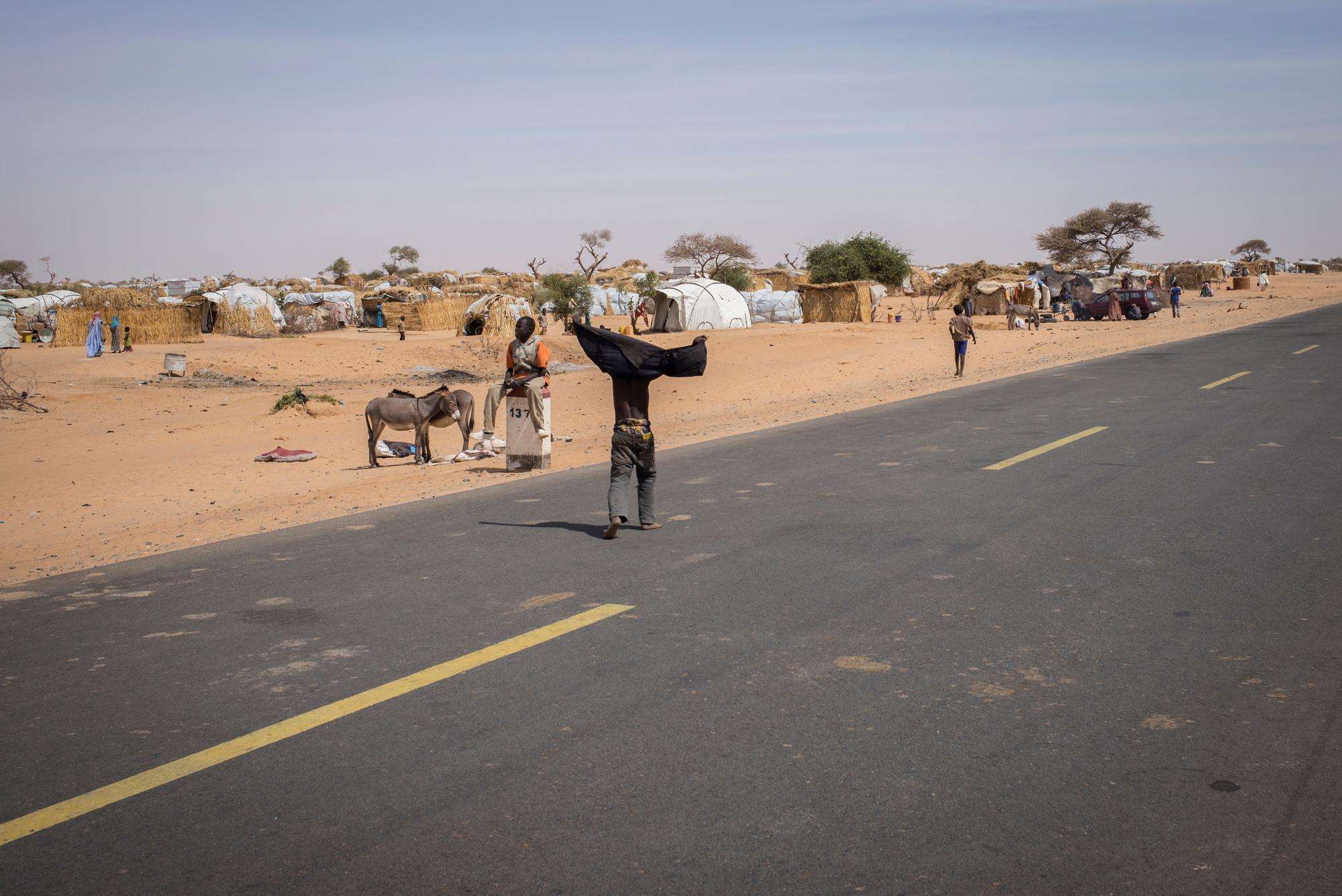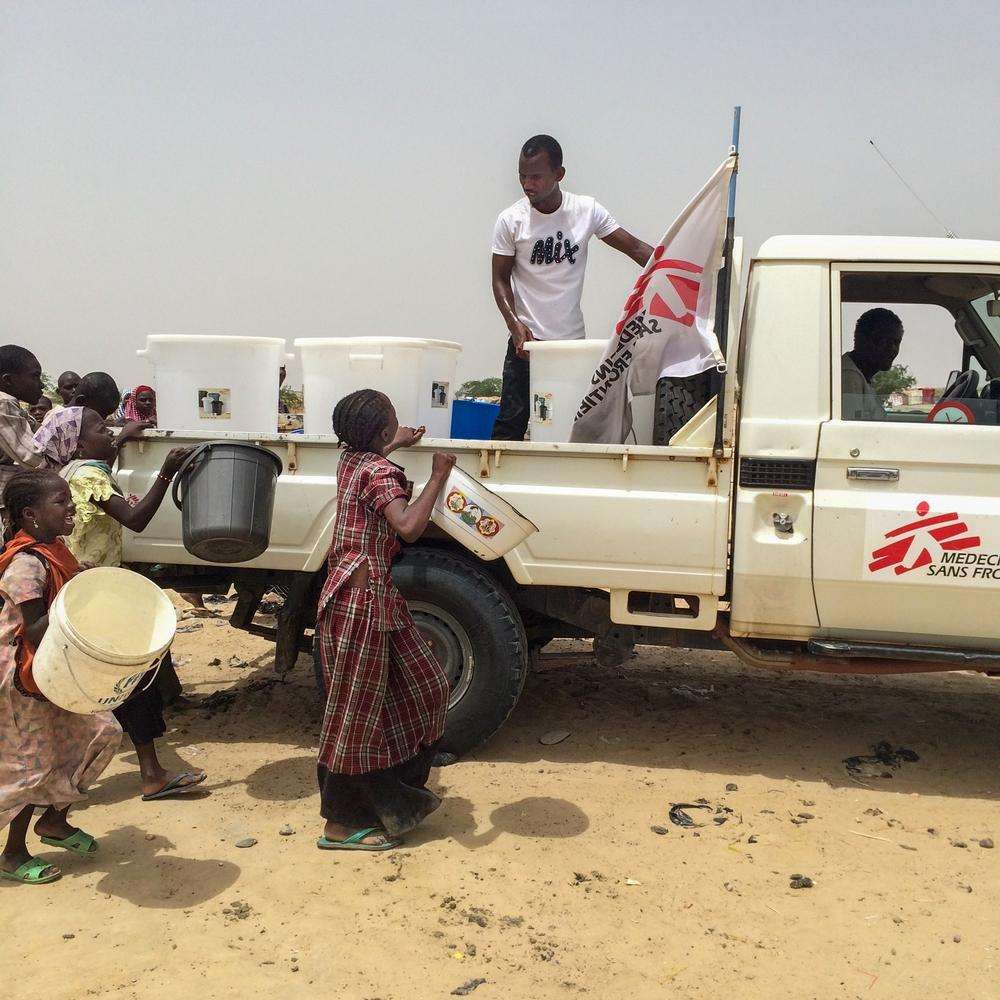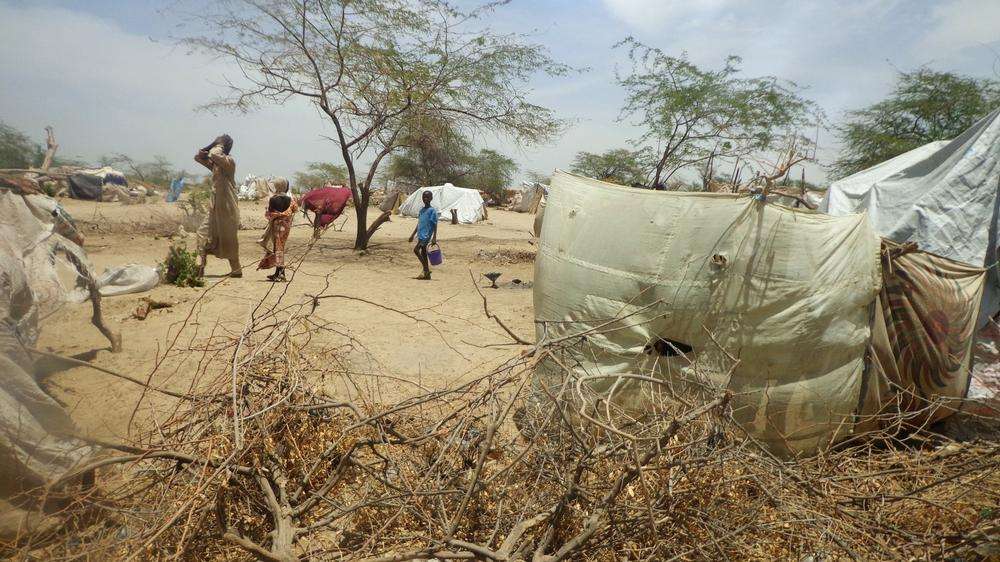Since February 2015, the region of Diffa, in Niger, has become the target of attacks by the Islamic State’s West Africa Province (ISWAP), also known as Boko Haram. The continuous violence has caused an exodus of more than 300,000 people.
For months, the displaced population has settled around main cities and villages of Diffa, Nguigmi and Bosso districts, as well as in makeshift camps along the RN1 road that connects Diffa with Niamey, the capital of Niger. They are living in very precarious conditions. The majority are fishermen or farmers but, for security reasons, the Niger authorities have banned their access to the banks of the Komadougou river, where they carried out all their activity.
In this context, MSF is working to support several health centres in the region, as well as the main maternal and child centre in the city of Diffa and the Nguigmi district hospital. MSF is also providing medical care in several displacement camps and sites.
Sylvain Cherkaoui / Cosmos for MSF
